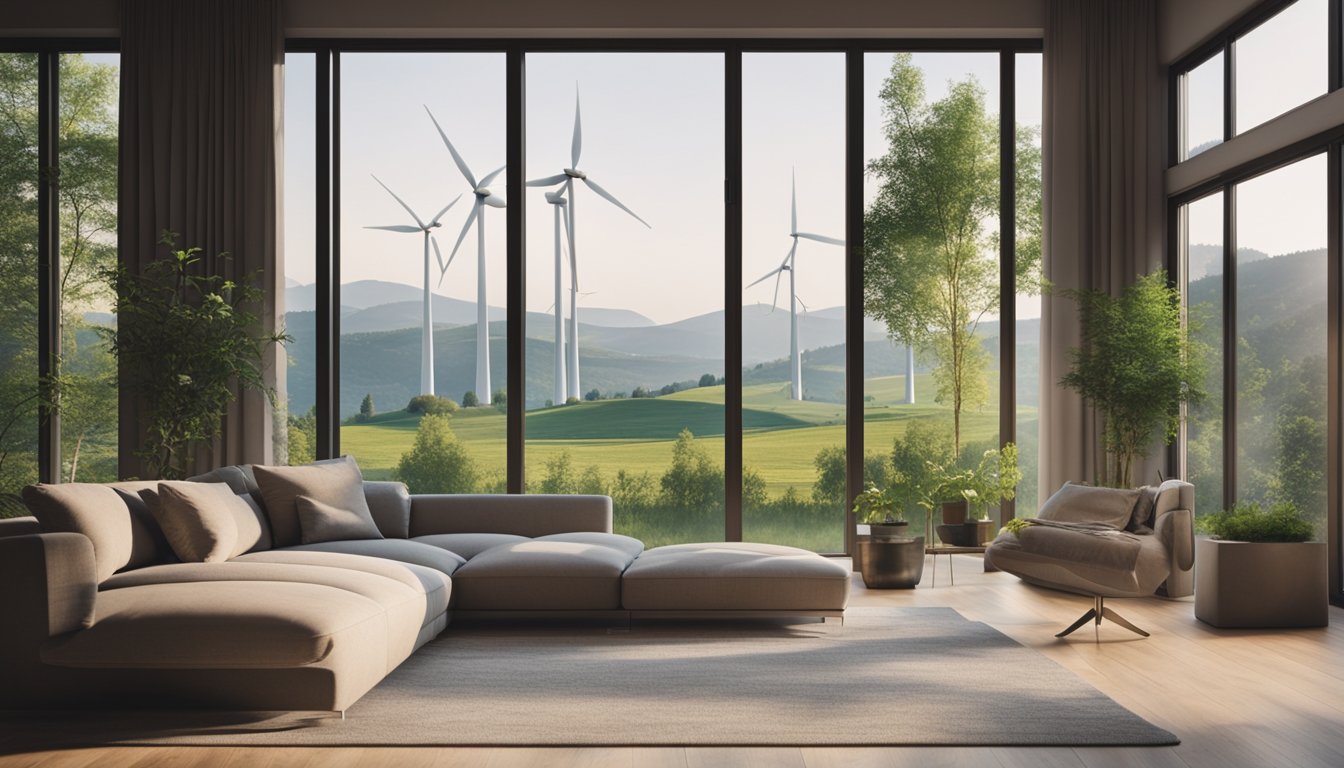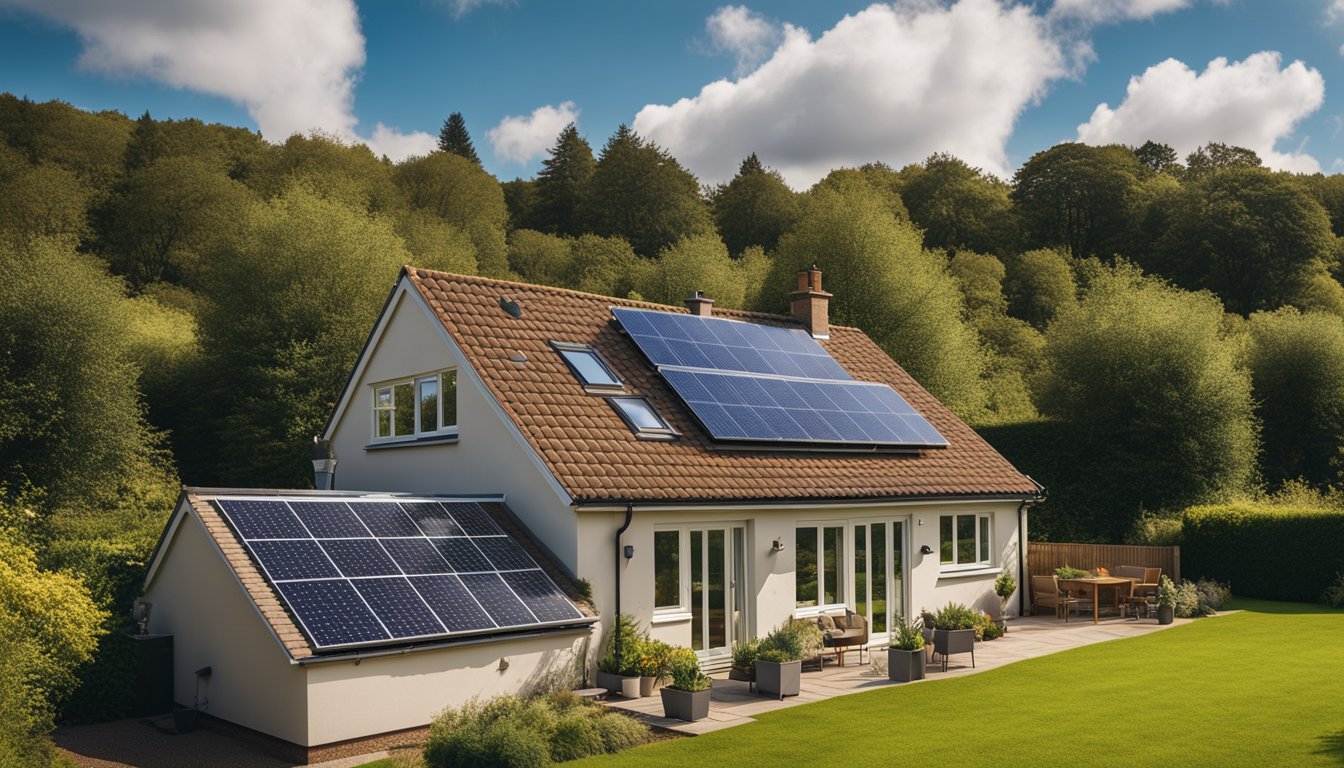Late updated: 29 Apr 2025 09:04
Written by: Eleanor Hartman
Innovative Renewable Heating Systems For UK Homes: Transforming Energy Efficiency
As we explore the landscape of innovative renewable heating systems for UK homes, new technologies promise to revolutionise how we approach energy efficiency and sustainability. These advancements offer the potential to significantly reduce our carbon footprint, aligning with environmental goals and reducing energy costs. Incorporating systems such as heat pumps, biomass boilers, and solar heating, innovative renewable solutions provide an exciting opportunity for homeowners to embrace greener living.

Our focus on these systems goes beyond just installation; it involves understanding the practical benefits and challenges associated with each option. For instance, while solar water heating taps into an abundant energy source, heat pumps provide efficient energy conversion suited to diverse climates. These solutions signify a shift towards more efficient and sustainable home heating methodologies in the UK.
Yet, the transition to these methods is not solely about technology; financial factors also play a pivotal role. Various incentives and schemes, like the UK's ECO4 scheme, aim to support the adoption of renewable heating technologies. By navigating these opportunities, we can make informed decisions that help transform our homes into modern, energy-efficient havens.
Key Takeaways
- Innovative heating systems enhance energy efficiency and reduce carbon footprints.
- Understanding each system's benefits and limitations is crucial for effective implementation.
- Financial incentives provide support for adopting renewable heating solutions.
Understanding Innovative Renewable Heating Systems
Innovative renewable heating systems are becoming a vital part of making UK homes eco-friendly and energy efficient. These systems use advanced technologies to harness renewable energy sources, providing a cleaner and often more cost-effective alternative to traditional methods.
Types of Renewable Heating Technologies
We have several types of renewable heating technologies that are shaping the future of energy use in UK homes. Air source and ground source heat pumps are popular, extracting heat from the air or ground to warm homes and provide hot water. This process is efficient even in lower temperatures.
Biomass boilers use organic materials like wood pellets as fuel, offering an alternative to fossil fuels. They are sustainable and can integrate into existing heating systems. Solar thermal panels absorb sunlight to heat water directly, reducing the reliance on conventional energy sources. These technologies play a crucial role in reducing carbon footprints and energy use.
Heat Pump Technology and Systems
Heat pump systems are at the forefront of renewable heating, providing a significant reduction in carbon emissions. By transferring heat from outside sources such as air, ground, or water to the home, they provide a reliable and efficient heating solution. Air source heat pumps work effectively even when temperatures are as low as -15℃, making them suitable for various climates.
These systems usually consist of an outdoor unit and an indoor unit, working together to distribute heat. Ground source heat pumps require some installation in the ground but offer a stable and efficient heat source year-round. As part of our move toward sustainable living, heat pumps are integral to reducing dependency on traditional central heating systems.
Electrification of Heat in UK Homes
We are witnessing a growing trend towards the electrification of heat, where electric heating plays a central role in reducing carbon emissions. Electric heating systems, such as electric heat pumps, transform how energy is utilized in homes. They are more controllable and easier to integrate with renewable energy sources compared to conventional gas-based systems.
The shift to electric heating is supported by government incentives and improved infrastructure, such as smart grids. This transition allows for better energy management and can significantly decrease overall energy use. For UK homes, it represents a step towards greater energy efficiency, contributing to both environmental and economic benefits.
Benefits, Challenges, and Financial Incentives

As we explore the adoption of renewable heating systems in UK homes, it’s essential to recognise their potential benefits and the available financial incentives, alongside considering the challenges involved. Balancing these aspects can significantly impact energy efficiency, carbon emissions, and financial decisions for homeowners.
Energy Efficiency and Cost Savings
Investing in innovative renewable heating systems can lead to significant energy efficiency improvements. These systems, including heat pumps and solar thermal panels, replace traditional gas boilers, reducing dependency on fossil fuels. By enhancing energy performance, households can see a notable drop in electricity and heating bills. Installing such systems can increase property values, as noted by industry reports, by as much as 15%.
These systems also contribute to better energy performance certificates (EPCs), which is crucial in measuring a home’s energy efficiency. With rising energy prices, this could mean substantial long-term savings. As the costs of renewable technology installations decrease, initial high investments begin to look more attractive through reduced energy expenditures.
Reducing Carbon Emissions and Achieving Climate Goals
Transitioning to renewable heating is key to reducing carbon emissions. Using electricity from renewable sources significantly lowers a home’s carbon footprint, contributing towards national climate change targets. Our shift away from fossil fuels plays a part in realising the UK Climate Change Committee's objectives for a sustainable future.
Air quality improvements result from reduced gas boiler usage, benefiting public health and environment. The adoption of these systems aligns with the UK’s broader climate goals, crucial in addressing the immediate impacts of climate change and promoting sustainable living. An investment in renewable energy today promises a cleaner tomorrow.
Incentives and Support Schemes in the UK
There are several government schemes aimed at promoting the installation of renewable heating systems. The Boiler Upgrade Scheme offers financial assistance for installing low-carbon heating technologies. Additionally, the Renewable Heat Incentive (RHI) provides ongoing payments to those using renewable heating, easing the financial burden of transitioning from conventional systems.
Such incentives are designed to address high upfront costs and reduce the imbalance in energy levies. By participating in these schemes, homeowners can access grants and subsidies to make the shift more economically feasible. These support measures are crucial in driving mass adoption and achieving a collective sustainable future.
Frequently Asked Questions

We explore the most pressing questions about renewable heating systems for UK homes, focusing on top choices, cost considerations, effectiveness in older properties, and functional details of heat pumps and geothermal options. Discover what the future may hold for domestic heating technology in the UK.
What are the top-rated renewable heating systems currently available for UK homes?
UK homeowners have various options for renewable heating, including air source heat pumps, ground source heat pumps, solar thermal systems, and biomass boilers. Each system offers unique benefits and can be suitable for different types of homes and preferences.
How do the costs of implementing renewable heating solutions for UK residences compare?
The initial setup costs for renewable heating systems are typically higher than traditional heating systems. However, these systems often lead to lower running costs and significant savings on energy bills over time. Additionally, government incentives and grants can help offset some of the initial expenses.
Which eco-friendly heating system is considered the most effective for older UK properties?
For older properties, ground source heat pumps and biomass boilers tend to be highly effective. These systems can integrate with existing heating infrastructure and are capable of providing consistent and reliable warmth, especially in buildings with less insulation.
How does an air source heat pump function in the UK climate for domestic heating?
Air source heat pumps absorb heat from the outside air, even in cold conditions, to heat indoor spaces and water. They are efficient at temperatures typical in the UK and can reduce carbon emissions significantly compared to gas or oil systems.
What advancements in geothermal heating technology are applicable for UK households?
Recent advancements in geothermal technology include more efficient heat exchange methods and integration with smart home systems. These improvements allow for better energy management and optimisation, enhancing overall system performance in UK homes.
What are the projections for the evolution of domestic heating in the UK?
Renewable heating technologies are expected to see increased adoption in the UK, driven by policy targets for carbon reduction and energy efficiency. Innovations such as hybrid systems and more cost-effective solutions are likely to shape the future landscape of domestic heating.